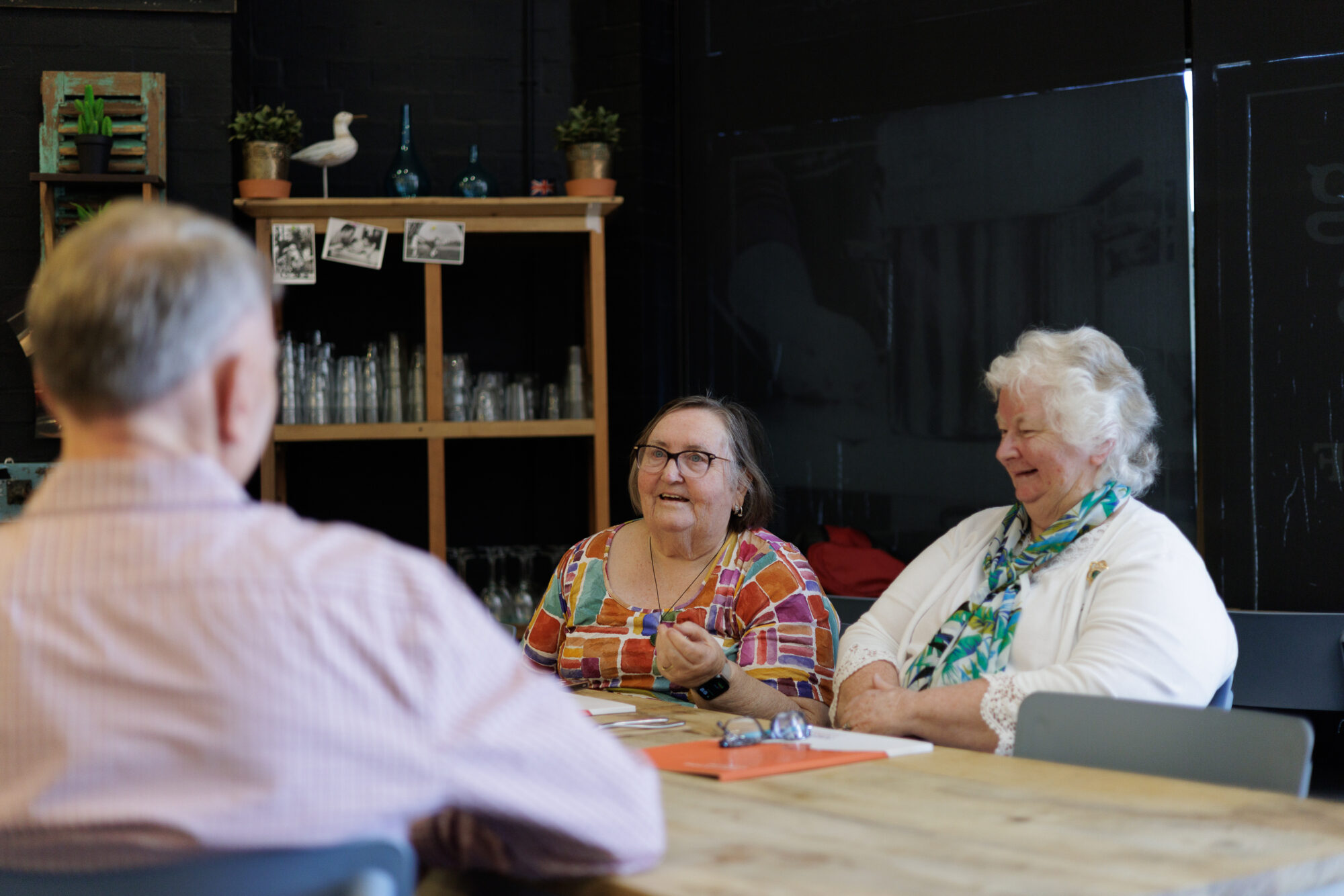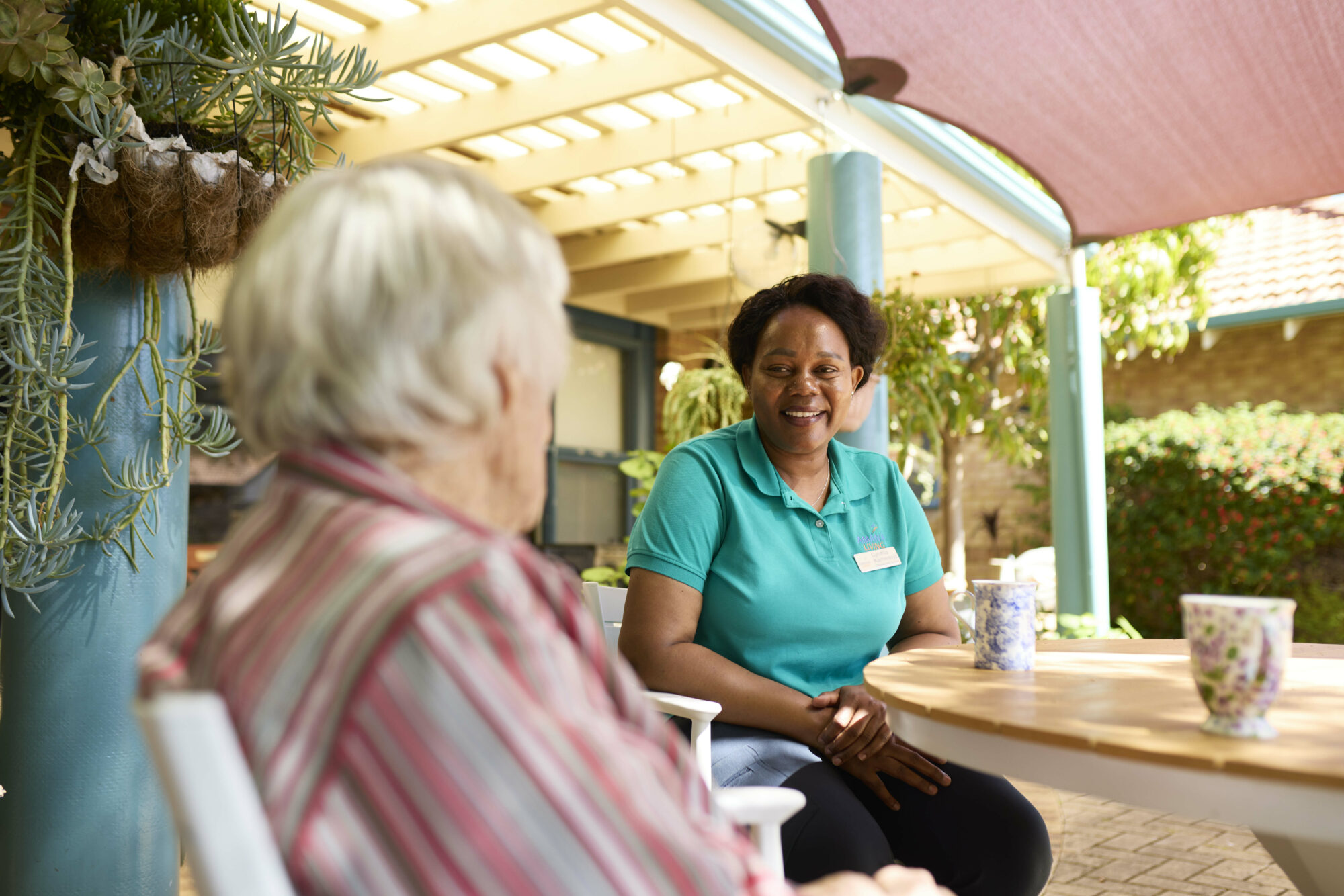“I have no regrets about the time spent with my father, but it did take a significant toll on my life. It was traumatic to experience his decline so intimately and the time pressures set me back significantly, socially and economically. It was like falling down stairs—once you take the first step you can’t walk away from it. I am still recovering from the trauma of the isolation and stress.” Evidence given at the Royal Commission into Aged Care Quality and Safety.
A snapshot of caring in Australia:
- There are 2.65 million carers in Australia providing unpaid care and support to family members or friends.
- Of these, 428,500 primary carers provided care to someone aged 65 years or older.
- Older people receive informal care from:
- Partner (46.7%)
- Daughter (29.6%)
- Son (23.7 %)
- A more distant male relative or friend. (17.8%) (9)
- A more distant female relative or friend (14.3%)
(Source: Survey of Disability, Ageing and Carers, Australian Bureau of Statistics)
Being a carer can be both rewarding and challenging. It’s rewarding to see the person you love continue to live in the space that provides them safety, comfort and familiarity. It’s rewarding to help them to continue do the things they love.
Yet it can also be challenging to navigate the health and aged care systems in order to get the support you need, when you need it. It can be hard to deal with the constant physical and mental demands of having to care for someone, while also contending with the financial impacts caused by reduced working hours or taking time off work to care.
And lastly, it can be emotionally draining particularly when your own needs often go last or are completely unmet. Your connections with your friendship group can suffer and you can end up feeling isolated and alone.
This isolation and constant stress can impact your sleep, which affects your mood, ability to think, resilience and overall ability to cope. Investing in yourself is vital.
Carer’s stress - the facts:
- Nearly half of carers experience high or very high psychological distress.
- One in three carers feel highly socially isolated.
- One in three carers never get time out from their caring responsibilities, with only around half having enough time to keep on top of other responsibilities.
(Source: 2020 National Carer Survey)
So how do you combat carer stress?
There are a number of strategies, tools and resources you can utilise to help reduce carer stress.
Finding time for yourself so you can take a meaningful break is at the top of the list. If you don’t look after yourself, you can’t care for others. It’s like a car that doesn’t get maintained, eventually, it’s going to stop working.
One of the ways to make sure you take a break is to look into your respite care options. There are several forms of respite that you can access depending on what Government funding you have.
In-home respite is when a community support worker spends time at your home with your family member. It enables you to get some chores done, go for a walk or catch up with friends. It also gives your family member another person to interact with. Typically, in-house respite can be for two to four hours during the week but you can also access overnight respite if needed.
Another great option is a day club or centre which is also known as community respite. Day clubs are specifically geared toward providing older people with a safe and secure environment where they can spend the day supported by a professional team of staff.
At Amana Living, our day clubs have a full menu of activities that are designed to stimulate clients emotionally, mentally, and physically. Our interactive activities feature daily exercise, arts, craft, cooking, gardening, and community excursion programs that encourage positive ageing and wellbeing, as well as maintaining and supporting social connectedness.
“Some of our seniors are isolated and have become disengaged but they find their feet again at our club, forming connections with staff and other members who offer support and friendship.
“We provide a place where they can belong, where it’s ok if they forget or struggle with their sentences. For many of our members, the club gives them a reason to get up in the morning and tackle the day with purpose. It’s really wonderful because quite often it’s like giving people a second lease of life. It’s the most amazing job I’ve had in my life.” Amana Living Day Club Coordinator
The benefit of attending a day club is that your family member can go as often as they like, which makes it easier for you to plan and ensures you get consistent, regular breaks. The cost of attending a day club can be subsidised through the Commonwealth Home Support Program (CHSP) or home care package.
Finally, you can explore residential respite which is where your family member stays at a residential aged care home temporarily. There is a limited number of respite beds in Western Australia and you often have to book well in advance, so it’s not ideal for short-term breaks, where you need some flexibility or need emergency respite.
Overall, if you can access respite the benefits will be tremendous. Your mental health will improve, it can help enhance the relationships between you and your family member, and you’ll have time to form greater connections with friends and the community.
Caring for the carer – how to get help
“When you are a carer running on low batteries you don't have the energy to source support for yourself. All your energy goes into caring.” Carers NSW 2018 Carer Survey respondent
If you or your family member is an Amana Living home care client, contact your client service manager to talk about what supports we can put in place to help tackle carer stress. As a start, your client service manager can talk to you about the respite options available and can put you in touch with our day club coordinators to get your family member into a centre.
Your client service manager can also talk to you about other supports that might be available to make your life easier while caring for your loved one. This might include aids and medical devices that could reduce the physical strain of caring.
If you’re not yet an Amana Living client, we can still help! Our home care team is well-versed in all things aged care and is able to work with you to access the services you need. Contact our friendly customer care team on 1300 26 26 26.
Finally, The Carer Gateway is another good resource. They may be able to provide financial help, guidance on accessing carer payments and contributing towards respite, as well as provide counselling and other supports like training and education.
Ultimately, investing in yourself will help keep your family member safe, happy and well, reducing their chance of them going to hospital and living at home for longer.
Links to Amana Living's respite services:




